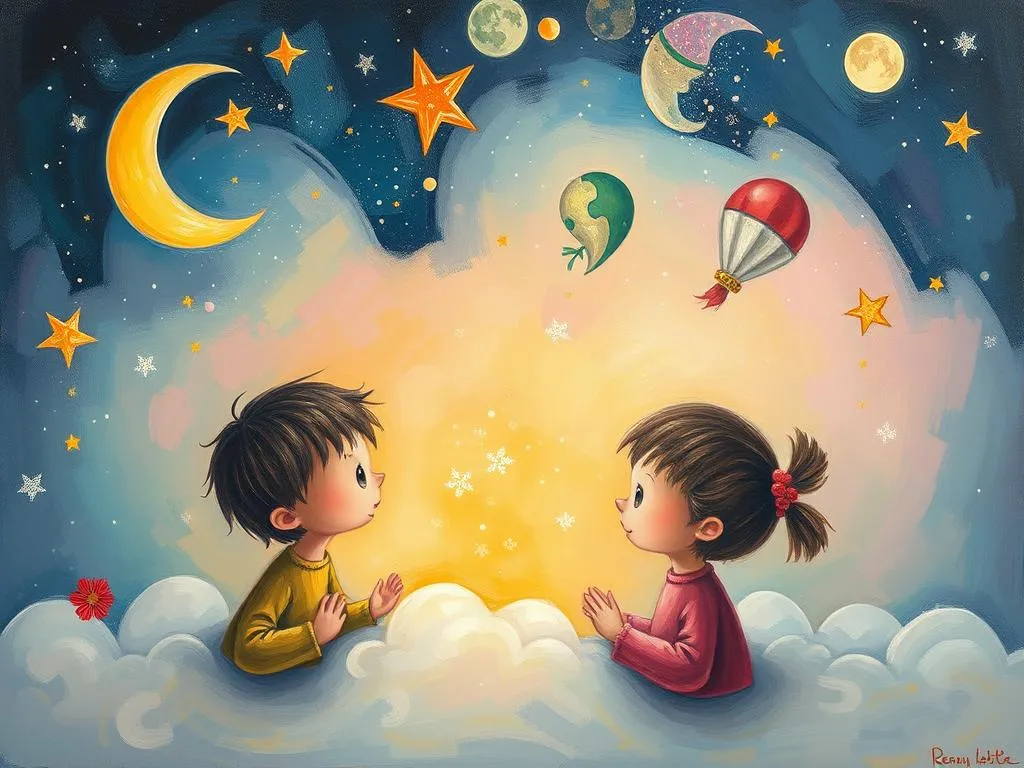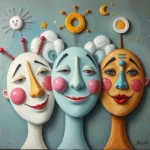
Have you ever woken from a dream where a small child appeared, their laughter echoing in your mind or their innocent gaze piercing your subconscious? Dreams featuring children can stir a range of emotions, from joy to confusion, and often leave us pondering their meaning long after we wake. These tiny figures can represent innocence, vulnerability, and even unfulfilled potential. As we explore the significance of children in dreams, we will uncover the layers of symbolism, personal experiences, and paths for growth that these dreams can offer.
With our busy lives, it’s easy to dismiss dreams as mere figments of our imagination. However, many cultures and psychological theories suggest that dreams hold deeper meanings. Understanding these meanings can help us reflect on our current life situations and emotional states. So, let’s dive into the world of dreams featuring small kids and unravel their mysteries together!
Tiny Figures, Big Meanings: The Symbolism of Children in Dreams
When children appear in our dreams, they can embody various symbolic meanings that resonate with our personal experiences and emotional landscapes. The innocence associated with children often reflects aspects of ourselves that are pure, untainted, and perhaps neglected due to the complexities of adult life. Here are a few key concepts to consider when interpreting dreams featuring small kids:
-
Innocence and Purity: Children represent the unblemished aspects of our psyche. If you dream of a joyful child playing, it may indicate a desire to reconnect with your own playful spirit or a reminder to embrace simplicity and joy in your life.
-
Vulnerability: Children are often seen as vulnerable beings. Dreaming of a lost or crying child might symbolize a part of you that feels exposed or helpless. It could be a call to address unresolved issues or fears that you have been neglecting.
-
Potential and Growth: Small children in dreams can also signify untapped potential and the innate creativity we all possess. If you see a child taking their first steps, it may suggest that you are on the brink of a new journey or opportunity in your waking life.
-
Nostalgia: Dreams about children can evoke feelings of nostalgia, reminding you of your own childhood experiences or unresolved emotions related to your upbringing. Reflecting on these feelings may help you gain insights into your current emotional state.
-
Fertility and New Beginnings: In some cultures, children appear in dreams as symbols of new beginnings or projects. If you are contemplating a new venture, a child might represent the birth of an idea or the potential for growth in your personal or professional life.
Understanding these symbolic meanings can guide us in interpreting our dreams and help us navigate our emotional landscapes more effectively.
Childhood Whispers: Scenarios That Speak Volumes
Now that we’ve explored the symbolic meanings of children in dreams, let’s consider specific scenarios that might occur. Each scenario offers a unique perspective on how these dream images can relate to our waking lives. Here are a few common situations:
-
Dreaming of a Playful Child: You find yourself in a dream filled with laughter and carefree play, watching a child run joyfully through a meadow. This dream may indicate a longing for freedom and joy in your life. It is a gentle nudge to let go of your adult worries and embrace the lighter side of life. Ask yourself what activities bring you joy and how you can incorporate more of them into your daily routine.
-
A Lost Child: In this dream, you wander through a crowded place, desperately searching for a small child who has gone missing. This scenario can evoke feelings of anxiety and fear, reflecting your own feelings of being lost or overwhelmed in your waking life. The lost child might represent an aspect of yourself that you have neglected. Consider what areas of your life need attention or nurturing, and take steps to reconnect with them.
-
A Child Crying for Help: You encounter a child in distress, calling out for help. This powerful image might symbolize your own feelings of vulnerability or a situation where you feel unable to express your needs. It could also reflect your empathy towards others who are struggling. Take time to explore your emotions and consider reaching out for support if necessary, either for yourself or to assist someone else in need.
-
Teaching a Child: In this dream, you find yourself in a classroom, teaching a small child something new. This scenario can indicate a desire for personal growth or a realization that you have wisdom to share. It may also signify the importance of nurturing your own inner child and fostering a sense of curiosity and learning in your life. Reflect on what new skills or knowledge you want to acquire and how you can cultivate a mindset of lifelong learning.
-
Revisiting Childhood Memories: You dream of a childhood home filled with happy memories, where children play and laughter fills the air. This dream may represent a longing for the simplicity and joy of your youth. It can serve as a reminder to cherish the positive aspects of your past while recognizing how they have shaped your present. Consider how your childhood experiences influence your current beliefs and relationships, and find ways to honor those memories in a healthy way.
These scenarios illustrate the diverse ways that children manifest in our dreams, each offering a distinct perspective on our emotional experiences and personal journeys.
Nurturing the Inner Child: Pathways to Personal Growth
As we come to the end of our exploration, it’s essential to recognize that dreams featuring small kids not only provide insights into our emotional states but also offer pathways for personal growth. Here are some practical ways to nurture the lessons learned from these dreams:
-
Reconnect with Your Inner Child: Reflect on what brought you joy as a child. Engage in activities that spark creativity and playfulness—whether it’s painting, dancing, or simply spending time in nature. Allowing yourself to embrace your inner child can rejuvenate your spirit and foster a sense of well-being.
-
Address Unresolved Emotions: If your dreams highlight feelings of vulnerability or fear, take time to journal your thoughts and emotions. Exploring these feelings can lead to insights that help you process past experiences and move forward with a greater sense of clarity.
-
Set New Goals: Inspired by the potential represented by children in your dreams, take a moment to set new goals for yourself. Whether they involve personal, professional, or creative pursuits, envisioning yourself taking “first steps” toward these goals can be empowering.
-
Practice Self-Compassion: Recognize that, like children, you deserve love and compassion. Be gentle with yourself as you navigate challenges and setbacks. Affirmations and positive self-talk can foster a nurturing inner dialogue that encourages growth and resilience.
-
Engage with Others: If your dreams involve helping or teaching children, consider how you might extend that sense of support to others in your life. Engaging in community service, mentorship, or simply being there for a friend can enhance your connections and provide fulfillment.
As you reflect on your dreams featuring small kids, remember that these experiences are not just random occurrences but invitations to explore the depths of your psyche. They encourage you to embrace your innocence, vulnerability, and potential.
In this journey of self-discovery, let us remember: the heart of our dreams is often a mirror reflecting our most profound desires and fears. By understanding and nurturing the messages hidden within, we can cultivate a richer, more fulfilling life.
So, the next time a small child graces your dreams, take a moment to listen closely. What wisdom do they hold for you? What aspects of yourself are they urging you to rediscover? The answers may guide you on a transformative path toward personal growth and self-acceptance.







